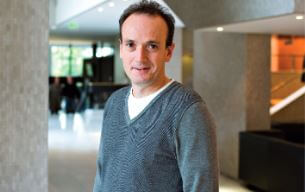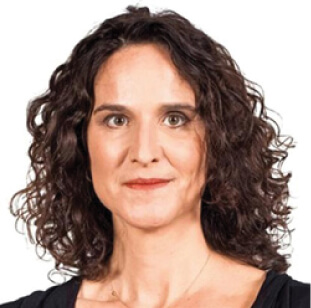The Espresso pitch
One of the most creative ideas from agency planners in recent years was for the Account Planning Group itself. It came from Malcolm White, during his tenure as APG chairman, when he revolutionised its annual conference to create the first Battle of Big Thinking (BoBT) in association with Campaign.
White saw that the normal routine of 90-minute speaker slots, plus time for questions, was an overblown format for an industry supposedly at the cutting edge in a fast, interactive world. He replaced them with 15-minute presentations, three on each discipline, back to back – so three on branding, three on media, and so on. The audience members weren’t just passive recipients of speaker wisdom, they were judges, and their verdict was instant: everyone held scoring devices in their hands and voted on the presentation they thought was the best.
Aside from the gladiatorial drama, the format made for tight, idea-rich presentations, which either captured the imagination or magnificently crashed and burned. The skill required of speakers was to combine brevity with potency: an intellectual espresso, not an Americano. You couldn’t just skim, but neither could you wallow. What’s surprising is how much of real worth you can say in 15 minutes if you are ruthless about sacrificing every syllable that does not develop your argument.
Like all good formats, the BoBT will transfer to other situations, and is not necessarily restricted to conferences. Right now, there is one that cries out for it: the agency pitch. The aim is to cut the sprawling pitch process down to size, to limit stress for agencies while helping marketers make better decisions about who to hire.
The rules are simple: three shortlisted agencies only. Each to get generous preparation time before the pitch, and each to have access to as much market, brand and research data as it needs. On the day itself, all three agencies pitch, back to back, for 15 minutes. The client makes its decision that day, let’s say after a short deliberation (I somehow can’t see them doing the palm-vote thing).
There will be objections, of course. Agencies will say that 15 minutes cannot do justice to the work they have put into the pitch process. They are wrong. The 15-minute discipline is a test of the key agency skill of synthesis. The brevity means there is no room whatsoever for equivocation. By the time you have said ‘on the one hand this, and on the other hand that’, the clock has ticked mercilessly on and you are haemorrhaging time.
So you have to be definitive, and to achieve that with any kind of confidence you have to dig deeper into the data and analyse better. The thinking, and the rigour behind it, gets better as the time for presentation tightens up, precisely because there is no room for hedging your bets.
For clients, the 15-minute discipline is tremendously revealing. They will be spared those tentative charts that say ‘towards a creative brief’, or ‘three alternative routes’. Instead they will experience a working demonstration of the very skills the agency will need if it is to add value for the brand in the real world: synthesis, brevity, imagination.
No more year-long pitches like the one just concluded for Emirates. No more second and third rounds. No more three-hour slots with all the intellectual intensity of a double latte with extra cream. It’s about who can take a brief and make the best espresso.

Murphy the 2009 victor said brands should be more fun
The inaugural BoBT, in 2006, featured some big industry names. Among the winners were Trevor Beattie, Ivan Pollard and Russell Davis. Although not a winner, Jonathan Durden’s presentation was one of the most talked about.
In 2009, the overall winner was JWT’s Guy Murphy (pictured), who called for brands to be more fun and recommended that every brand should have its own representative toy figure.
The original Big Thinking categories covered the key disciplines of marketing, branding, media, research, digital, advertising and planning. New categories include publishing, mobile and social media.
Last year, an open mic session was introduced, with 15-minute slots exclusively for planners under 30.
In March, BoBT went global via the Communications Council of Australia and Sydney APG.
The next BoBT takes place on 25 November, with previous winners squaring up in one big battle of the egos.
